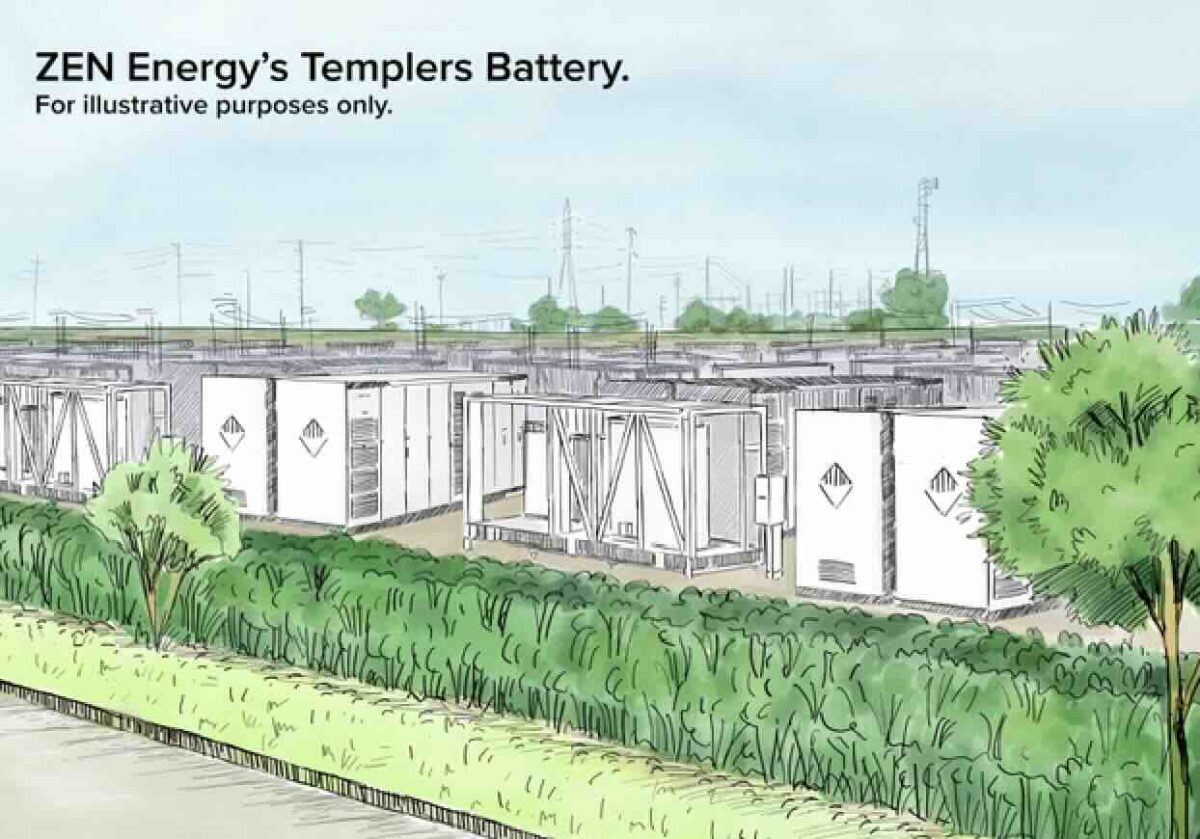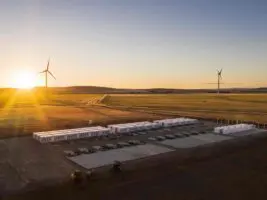The Ross Garnaut-backed Zen Energy has landed a major new Taiwanese backer, in an equity deal that has the Australian retailer eyeing a first mover advantage in Japan’s emerging battery storage market.
Taiwan-listed HD Renewable Energy Co (HDRE), valued at more than $1.1 billion, is spending $43 million to buy a slab of new shares that will see it take a 9.7 per cent stake in Zen, and provide the company a growth pathway outside Taiwan.
The deal values Zen at $443 million and provides capital for its two main local projects, the Templers battery and the Solar River solar-battery project, both in South Australia, and a gateway into the north Asian electricity markets.
The extra cash will also give Zen an opportunity to deleverage, after raising a total of $214 million in debt funding over the last year.
“We particularly look for people who are willing to move fast, and HDRE is motivated to get storage projects up and running in Australia as quickly as possible,” says Zen Energy CEO Anthony Garnaut.
“We’re primarily seeking to accelerate our storage program and that means contracting more storage into our portfolio and accelerating our own development program.”
What that means is a multi-pronged approach that includes more battery storage to smooth out renewables in Australia, the start of a green hydrogen division, also at home, and potential battery projects in Japan and electricity supply agreements for data centres and other high energy users in Taiwan.
Zen Energy was introduced to HDRE at the start of 2024 by a mutual battery supplier, and in June the duo signed a cooperation agreement to look at energy storage and green hydrogen projects.
That deal is still on, for HDRE to build and own battery storage which Zen would then lease – in its capacity as a renewable energy retailer first.
Garnaut says batteries are cheaper than buying hedging contracts as a way to minimise the impact of periods of extreme demand.
“We find batteries as the most cost effective form of insurance,” he says.
“In South Australia, a cap [contract] costs about $30 per megawatt per hour, where leasing a 2 hour battery costs around $20 per megawatt per hour.
“That’s a third cheaper, but for our portfolio we also see that it provides a better and more effective form of insurance because it can benefit from negative prices and provide FCAS services and so forth.”
Garnaut says they’ve been looking into green hydrogen for several years, and for companies such as China Steel in Taiwan it is cheaper to decarbonise their processes via hydrogen made in Australia than in Taiwan.
“The same holds true for most of East Asia and Northern Europe,” he says.
“That’s a long term opportunity, but we are also involved in a number of conversations on a shorter timetable, that could be three or four years from operating in Australia.”
It’s also signed a partnership with Mitsubishi subsidiary DGA Energy Solutions to look at how green hydrogen might be able to decarbonise the Japanese company.
Garnaut cites the Japan government’s interest in battery storage as another opportunity that HDRE might be able to open the door to, as well as in selling renewable energy to global companies based in Taiwan such as TSMC and Foxcon, which make semiconductors and electronics respectively.
And he also has his eye firmly on the potential of data centre energy use, which in Australia are the biggest source of electricity load growth today..
“We’ve been looking actively at how our storage program could be lined up with the program to develop data centres,” he says.
‘We would happily pair with a data centre developer [to supply electricity].”







